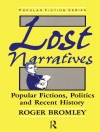New essays demonstrate Gower’s mastery of the three languages of medieval England, and provide a thorough exploration of the voices he used and the discourses in which he participated.
John Gower wrote in three languages — Latin, French, and English — and their considerable and sometimes competing significance in fourteenth-century England underlies his trilingualism. The essays collected in this volume start from Gower as trilingual poet, exploring Gower’s negotiations between them — his adaptation of French sources into his Latin poetry, for example — as well as the work of medieval translators who made Gower’s French poetry availablein English. ‘Translation’ is also considered more broadly, as a ‘carrying over’ (its etymological sense) between genres, registers, and contexts, with essays exploring Gower’s acts of translation between the idioms of varied literary and non-literary forms; and further essays investigate Gower’s writings from literary, historical, linguistic, and codicological perspectives. Overall, the volume bears witness to Gower’s merit and his importance to English literary history, and increases our understanding of French and Latin literature composed in England; it also makes it possible to understand and to appreciate fully the shape and significance of Gower’s literary achievement and influence, which have sometimes suffered in comparison to Chaucer.
ELISABETH DUTTON is Fellow of Worcester College, Oxford.
Contributors: Elisabeth Dutton, Jean Pascal Pouzet, Ethan Knapp, Carolyn P. Collette, Elliot Kendall, Robert R. Edwards, George Shuffleton, Nigel Saul, David Carlson, Candace Barrington, Andreea Boboc, Tamara F. O’Callaghan, Stephanie Batkie, Karla Taylor, Brian Gastle, Matthew Irvin, Peter Nicholson, J.A. Burrow, Holly Barbaccia, Kim Zarins, Richard F. Green, Cathy Hume, John Bowers, Andrew Galloway, R.F. Yeager, Martha Driver
Содержание
Introduction. John Gower: Readings in the Work of a Trilingual Poet — Elisabeth Dutton
Southwark Gower — Augustinian Agencies in Gower’s Manuscripts and Texts — Some Prolegomena — Jean-Pascal Pouzet
The Place of Egypt in Gower’s
Confessio Amantis — Ethan Knapp
Topical and Tropological Gower: Invoking Armenia in the
Confessio Amantis — Carolyn P Collette
Saving History: Gower’s Apocalyptic and the New Arion — Elliot Kendall
Gower’s Poetics of the Literal — Robert R. Edwards
Romance, Popular Style, and the
Confessio Amantis: Confict or Evasion? — George Shuffleton
John Gower: Prophet or Turncoat? — Nigel Saul
The Parliamentary Source of Gower’s
Cronica Tripertita and Incommensurable Styles — David R. Carlson
John Gower’s Legal Advocacy and ‘In Praise of Peace’ — Candace Barrington
Se-duction and Sovereign Power in Gower’s
Confessio Amantis book V — Andreea D. Boboc
The Fifteen Stars, Stones, and Herbs: book VII of the
Confessio Amantis and its Afterlife — Tamara F. O’Callaghan
‘Of the parfite medicine’:
Merita Perpetuata in Gower’s Vernacular Alchemy — Stephanie L. Batkie
Inside Out in Gower’s Republic of Letters — Karla Taylor
Gower’s Business: Artistic Production of Cultural Capital and the Tale of Florent — Brian Gastle
Genius and Sensual Reading in the
Vox Clamantis — Matthew W. Irvin
Irony v. Paradox in the
Confessio Amantis — Peter Nicholson
Sinning against Love in
Confessio Amantis — John A. Burrow
The Woman’s Response in John Gower’s
Cinkante Balades — Holly Barbaccia
Rich Words: Gower’s
Rime Riche in Dramatic Action — Kim Zarins
Florent’s
mariage sous la potence — Richard Firth Green
Why did Gower write the
Traitié? — Cathy Hume
Rival Poets: Gower’s
Confessio and Chaucer’s
Legend of Good Women — John M. Bowers
Reassessing Gower’s Dream Visions — Andrew Galloway
John Gower’s French and His Readers — Robert F. Yeager
Conjuring Gower in
Pericles — Martha W. Driver
Bibliography
Об авторе
NIGEL SAUL is Emeritus Professor of Medieval History at Royal Holloway, University of London












